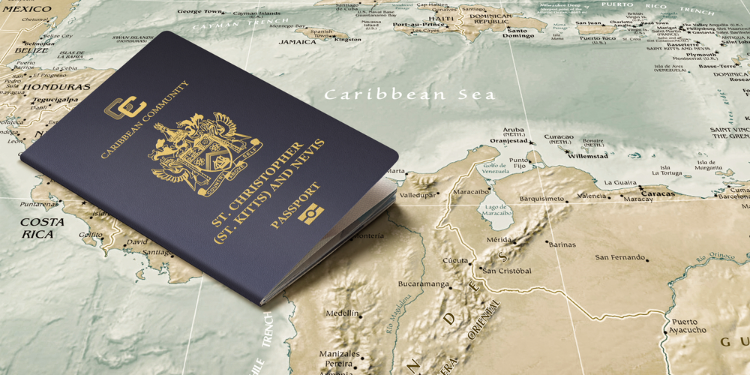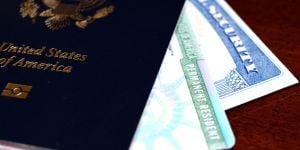
Expats choose a second citizenship for several reasons, including better opportunities for themselves and their families, stronger passports for travel freedom, and even as an alternative plan. The COVID-19 pandemic has changed the situations for many expats, making their futures uncertain, and some with financial means may look to obtain another citizenship.
The COVID-19 pandemic has changed lives worldwide and introduced a general uncertainty around the future. Many expats might be interested in changing their current locations, either by returning to their home countries or immigrating elsewhere, and wealthy individuals have the option to get an alternative citizenship.
Knight Frank, in their Wealth Report 2021 stated, “nearly a quarter of UHNWIs (Ultra-High-Net-Worth Individuals) are planning to apply for a second passport or citizenship”.
Several countries in popular regions offer Citizenship By Investment (CBI) programs to qualifying individuals. Here are a few such programs and the approximate investment requirements at the time of writing:
Malta
Qualifying individuals after a citizenship in Europe and a good quality of life may consider Malta for a second passport. As stated by Aġenzija Komunità Malta, you'll need EUR 600,000 or EUR 750,000, and more funds for fees and other requirements, including a philanthropic donation of EUR 10,000 to an approved organization. Expats should note the different options available, the rules, as well as the residency requirements. According to the Henley Passport Index 2021, the Malta passport offers visa-free or visa-on-arrival entry to 186 destinations.
St Kitts and Nevis
St Kitts and Nevis offer a Caribbean lifestyle without income tax and some other taxes and a passport with visa-free travel to places such as the Schengen countries. A key highlight is the lack of any residency requirements. Qualifying applicants can get St Kitts and Nevis citizenship with a donation of USD 150,000 plus fees. This price is also offered for a family of four until 31 December 2021, discounted from the regular amount of USD 195,000 for such a family. Remember to check the investment options and the relevant fees beyond the investment amount.
The 2021 CBI Index by the Professional Wealth Management magazine, a Financial Times publication, ranked St Kitts and Nevis number one together with Dominica.
Vanuatu
The Vanuatu citizenship will cost you a minimum of USD 130,000 and other fees. This island nation in the South Pacific might be of interest for those after a relaxed lifestyle with island hopping and a passport with visa-free access to Schengen countries and others. Notably, there are no residency requirements. Vanuatu is income tax-free, and you'll also not be subject to some other taxes.
Antigua and Barbuda
Expats can get citizenship in the Caribbean nation of Antigua and Barbuda with a minimum donation of USD 100,000 plus other fees. The destinations you can travel visa-free with an Antigua and Barbuda passport include the Schengen area. You'll also not face income and some other taxes. Check the different investment and donation options and fees.
Several other countries have CBI programs for qualifying applicants and families. Expats should make sure to understand all requirements applicable to their circumstances, including fees on top of the investment amounts and extra funds required for dependants, etc., as such amounts can be substantial.
Unfortunately, given the high price tag, CBI programs may not be an option for all expats. Some countries also don't allow dual citizenship, and certain expats from such places may not wish to give up their home country's citizenship.
Benefits of having more than one citizenship
Expats who obtain more than one citizenship by way of CBI or through other migration programs will generally have the following advantages.
Access to a good quality of life and opportunities
Citizenship in a stable destination may provide a better quality of life for expats leaving their home countries due to uncertainty or other issues. For some, getting another citizenship might provide the opportunity to enjoy the best of two countries. Expats may even choose to split their time between the countries of citizenship.
A second citizenship will also open more job and business opportunities, in addition to social benefits, for qualifying individuals and their families.
Lower tax bills
Depending on each person's circumstances and the tax laws of their home countries, getting a citizenship in a tax-free destination may lead to lower tax bills. However, expats should get professional financial and tax advice ahead of making any tax-related decisions.
Visit more destinations freely
For expats with weak home-country passports, a stronger second passport will provide a higher freedom of movement and reduce the burden of complex visa applications.
While there are benefits of having more than one citizenship, it may not be the case for everyone. Hence, expats who wish to obtain a second citizenship or multiple citizenships should check all relevant factors, obtain professional advice as required, and make an informed decision.



















